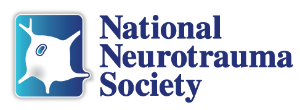Main Menu
Description & Objectives S02
S02: Management of Acute Autonomic Dysfunction After SCI






Chairs: Alexander Rabchevsky, PhD
S02.01 - Cardiovascular Complications Following SCI
Andrei Krassioukov, MD, PhD - University of British Columbia
S02.02 - Autonomic Consequences of Graded Contusion SCI
David Magnuson, PhD - University of Louisville
S02.03 - Micturition Consequences Following SCI
Charles Hubscher, PhD - University of Louisville
Session Description
Spinal cord injury (SCI) results not only in motor and sensory paralysis but also in autonomic dysfunctions, including cardiovascular, lower urinary tract, and gastrointestinal impairments which interfere with the quality of daily living. High thoracic or cervical SCI often results in autonomic dysreflexia as a result of unregulated sympathetic discharge upon noxious visceral or sensory stimuli below the injury. Impairments of the lower urinary tract are manifested in bladder storage and emptying. Inadequate or excessive detrusor and sphincter functions, as well as detrusor-sphincter dyssynergia, account for micturition deficits. Moeover, loss of autonomic control and sympathetic overdrive is also related to immunosuppressive states following SCI. The purpose of this session is, therefore, to bring together basic and clinician scientists to help identify neural mechanisms and pathophysiology underlying complications of autonomic dysfunctions after SCI in order to provide potential guidelines for novel therapeutic approaches
Learning Objectives
At the conclusion of this session, attendees will be able to:
- Understand how cardiovascular complications impact the overall health and well-being of SCI population form the view point of a clinician scientist.
- Learn how bladder dysfunction impacts daily living and methods being used to alleviate incontinence.
- Recognize the impact that sympathetic and immune system interactions have in the SCI population, and how pharmacotherapeutic approaches may prevent chronic conditions.
